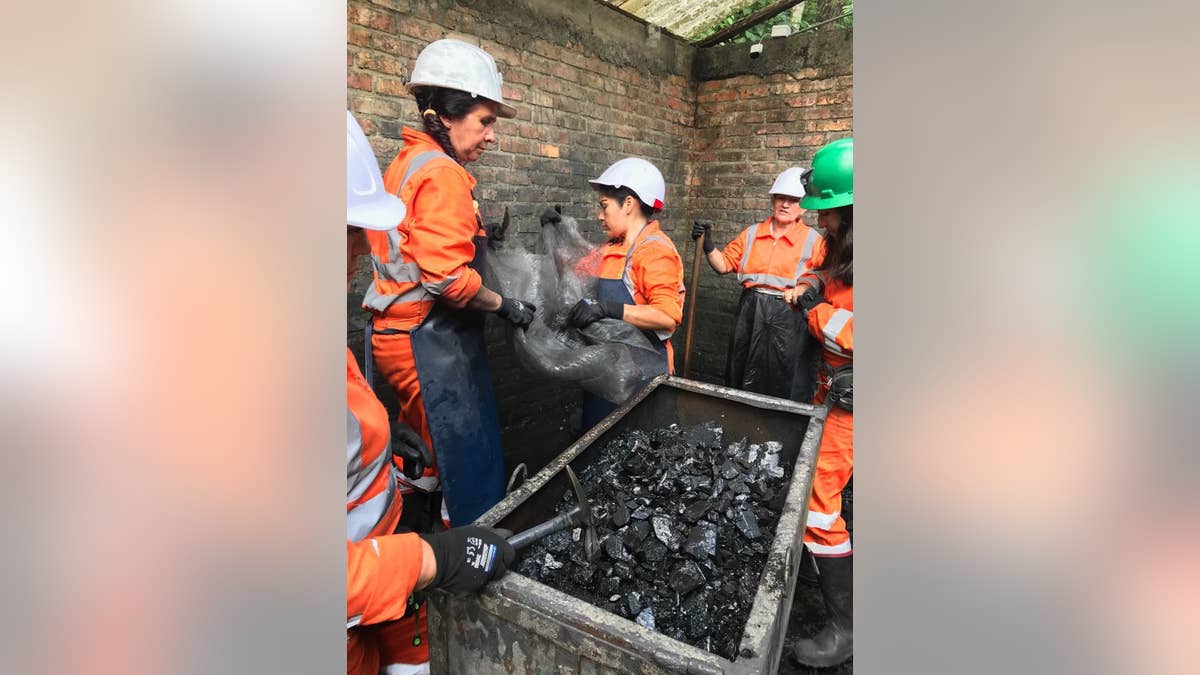
Mothers are shattering taboos in Colombia that they are "bad luck" in the mining industry. (FOX/Hollie McKay)
COSCUEZ, Colombia - Deep inside the lush and remote mountainous ranges of Colombia’s Boyacá region, the women disappear into dark tunnels, wreathed in shades of red and brown, sifting through nature’s treasure chest.
They're here to mine emeralds, an industry that has a long and bloody history in Colombia. But these women are determined not only to push back against a bygone law banning them for being “bad luck” in the mines; but also to provide for their families.
Decked out in an orange jumpsuit and rubber boots, Idaly Poveda, 47, hauls a heavy cart into a small enclosure and stands alongside two other women delicately sifting through tons of waste material, looking for that magical green glimmer.
“Now I have a salary, thanks to God,” Poveda, a single mother raising two children said, peering over at the tunnel entrance. “I’m not scared. I can show myself.”
Women were prohibited from the mines for decades. And it was just two years ago that Colombian laws prevented women from going down into the tunnels.
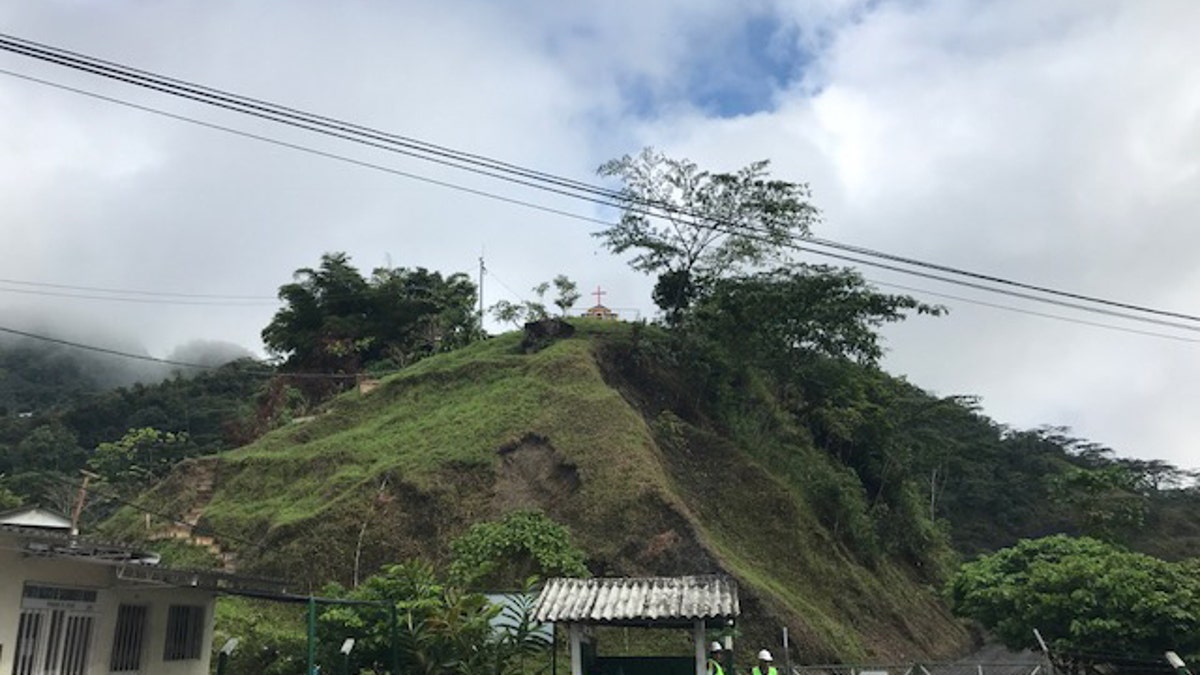
Coscuez Emerald Mine, Colombia (Fox News/Hollie McKay)
Now social attitudes are changing, as the women take up more work in the mines, including supervisory roles.
“The idea of being bad luck was a legacy from the old ‘machistas.’ Women were seen as an object exclusively to stay in the house,” said Alberto Ramos, president of the Community Action Board in Coscuez Alberto Ramos. “The mothers can now provide needed income for their families.”
Entangled by five decades of internecine war, the Coscuez mine was mostly closed. Last year, it was acquired by Canada-based Fura Gems. And while mining remains a divisive issue across much of the nation, it is slowly being brought back to life. Some 15 percent of the mine’s 231 employees are now local women, with that number slated to rise.
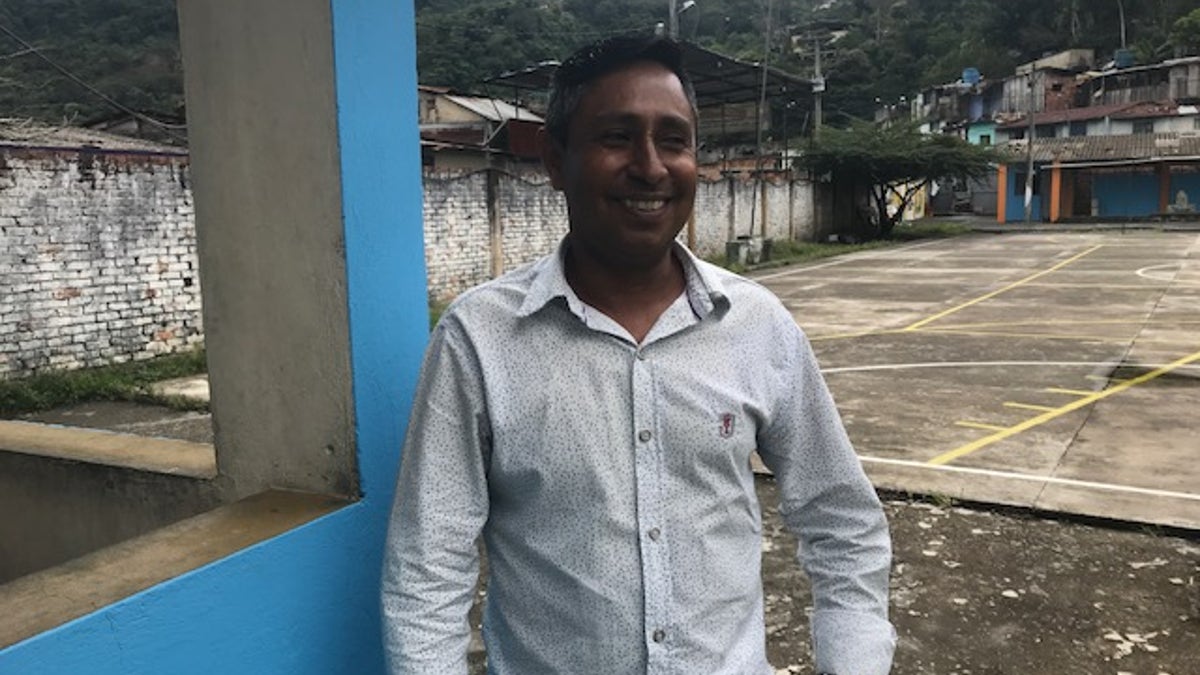
Albert Ramos, president of the Community Action Board in Coscuez, manages local requests and complaints in the 2,800-person emerald mining community (Fox News/Hollie McKay)
An all-female wash plant – where they comb through tons of debris to find the emeralds – is slated to open at the end of January. Women there will helm the entire operation, from security to analytics to heavy hauling.
“At the beginning, the women were concerned about how the men would feel about them working. Now, their role is evolving,” explained Maria Castilla, communication and social affairs manager for Fura. “Because the men went out to fight, the women had to take care of the kids and be the economic providers, too. And then with all the deaths and injuries, they really became the pillars of society. Now they are head-to-toe with the men in the mines. It’s a beautiful process.”
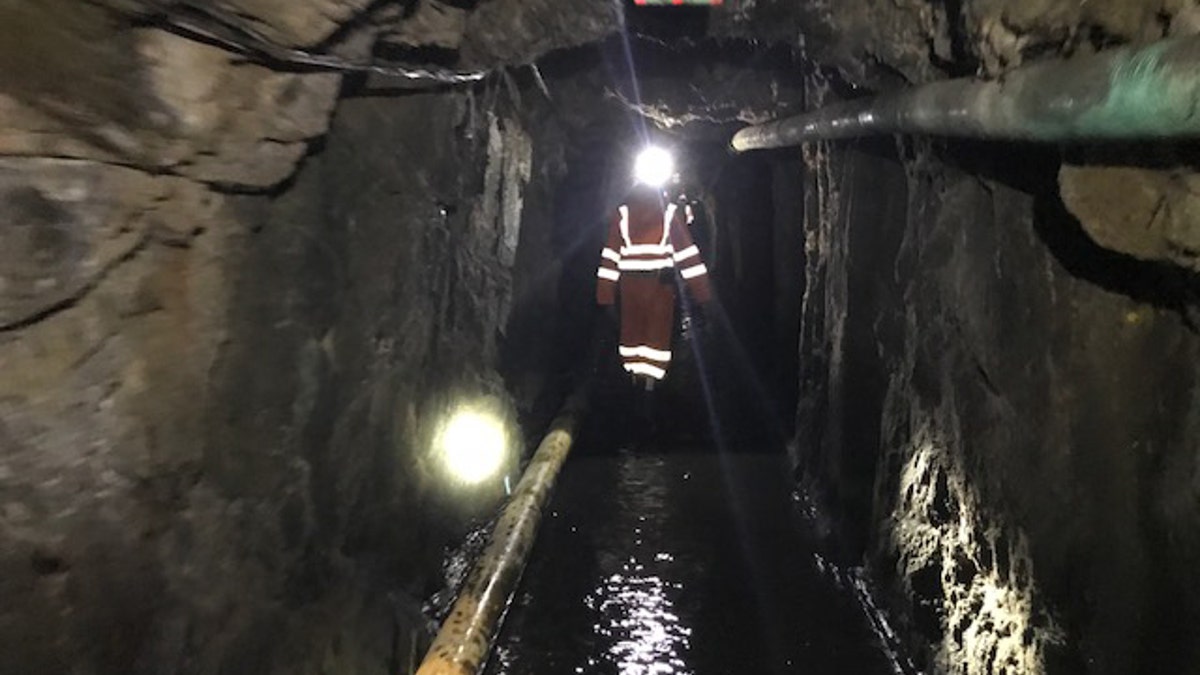
For decades, women were prohibited from the mines by men who claimed the female presence brought “bad luck.” Just two years ago, Colombian laws prohibited women from going down into the tunnels.
Indeed, this parcel of green has been at the heart of both life and death amid Colombia’s conflicts.
Throughout most of the 1970s and 80s, Boyacá was at the axiom of the notorious “Green Wars,” which pitted opposing emerald lords against each other. The Catholic Church and the bishop of Chiquinquira eventually paved the way to sealing a peace agreement, which remains in place today.
VENEZUELAN OPPOSITION LEADER LAMENTS "GENOCIDE" IN HIS COUNTRY, REVEALS HIS ESCAPE FROM DETAINMENT
INSIDE MOSUL DAM, IRAQ'S BIGGEST POTENTIAL WEAPON OF MASS DESTRUCTION
Karoll Garcia Pineda, director of the program for Development and Peace, said shifting the stigma hasn’t been easy.
“The ‘machista’ society hasn’t allowed women to see themselves moving forward, but the best way to counter these superstitions is by presenting facts,” she said. “To show that they play a key part in the artisanal mining sector while balancing their role in the family home.”
The new-found employment opportunities across the country, she noted, have been a saving grace for females fleeing domestic violence, and dangerous home lives.
“Women hit rock bottom. In the 90s, women were the receptors of a lot of violence. One can still find the wounds that need to be healed. Working and being together has also brought this issue into the public and outside the silence of the homes.”

(Fura )
But the newly emerging gender cohesion still raises concerns in the devoutly family-oriented society.
“Many women work for three weeks straight and then go home for a week so there was a concern on site about what trouble that could bring,” noted Edwin Molina – president of the Emerald Producers Association in Colombia.
Despite draconian laws and lingering superstition, several mothers admitted they previously slipped into the snaking and dangerous tunnels to take part in the illegal mining trade. Even now, those men and women who are caught illegally mining aren’t always sent off. Some are brought into the fold and offered the opportunity to train and become “compliant” with mining standards.
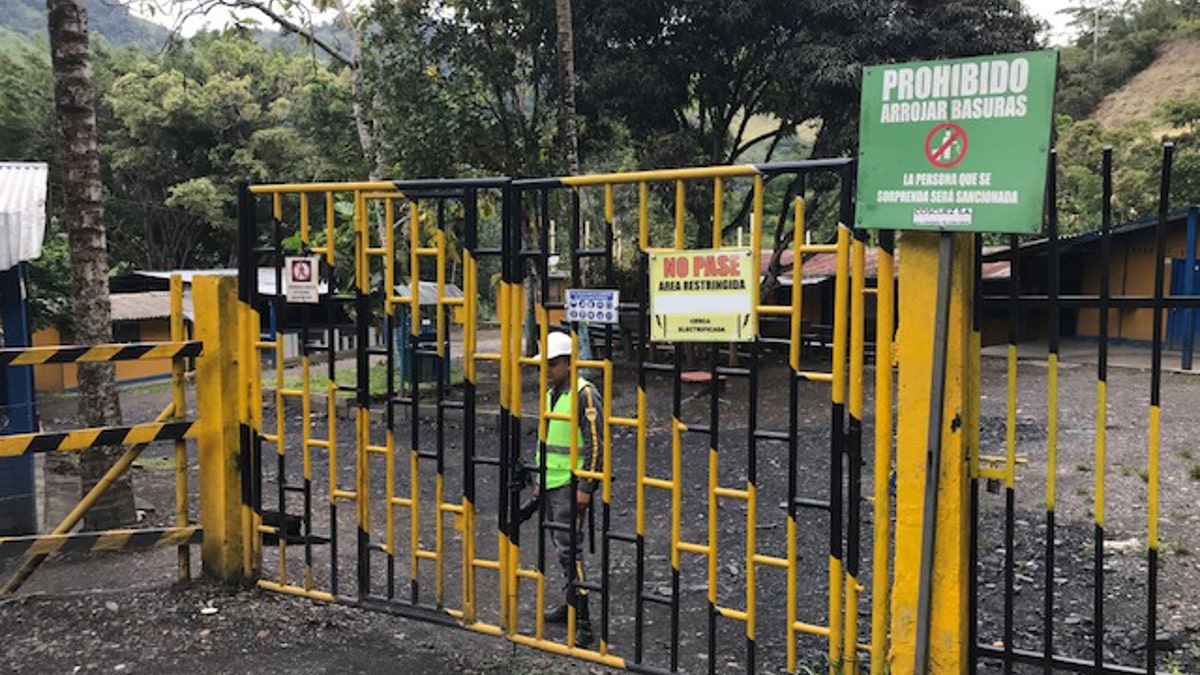
Colombia has long been considered the world’s leading emerald suppliers, featuring gems of unmatched quality (Fox News/Hollie McKay)
Molina said the biggest challenge is ensuring these “illegal miners” – also frequently referred to as informal miners – don’t instigate protests and community surveys that lead to mines being shut down.
“When you have a formal contract you have to comply with environmental regulations, reforest, pay wages and if there is a problem try to resolve it. Illegal miners don’t have to do any of that so they have big incomes and quietly force legal companies to stop mining,” he said. “So the mine gets closed down, then the next day they go in and extract all the minerals.”
Colombia has long been considered the world’s leading supplier of top-quality emeralds, and has held as much as 90 percent of the world market. But decades of instability ignited by drug barons and social conflict meant the troves of entombed gems often lay abandoned. According to Fura CEO Dev Shetty, it is estimated more than 90 percent of the resource-rich arena remains untapped, and they anticipate a mine life that could extend up to three to five more decades.
"Women are very special to the project, they have a special eye to pick out the emeralds," Shetty said, in stark contrast to the taboos that had preceded females in the industry.
Outside the mines, local women are also taking advantage of new opportunities to work learn English and build businesses alongside their male counterparts – from opening bakeries to sewing uniforms – all sparked by the reinvigorated emerald digging.
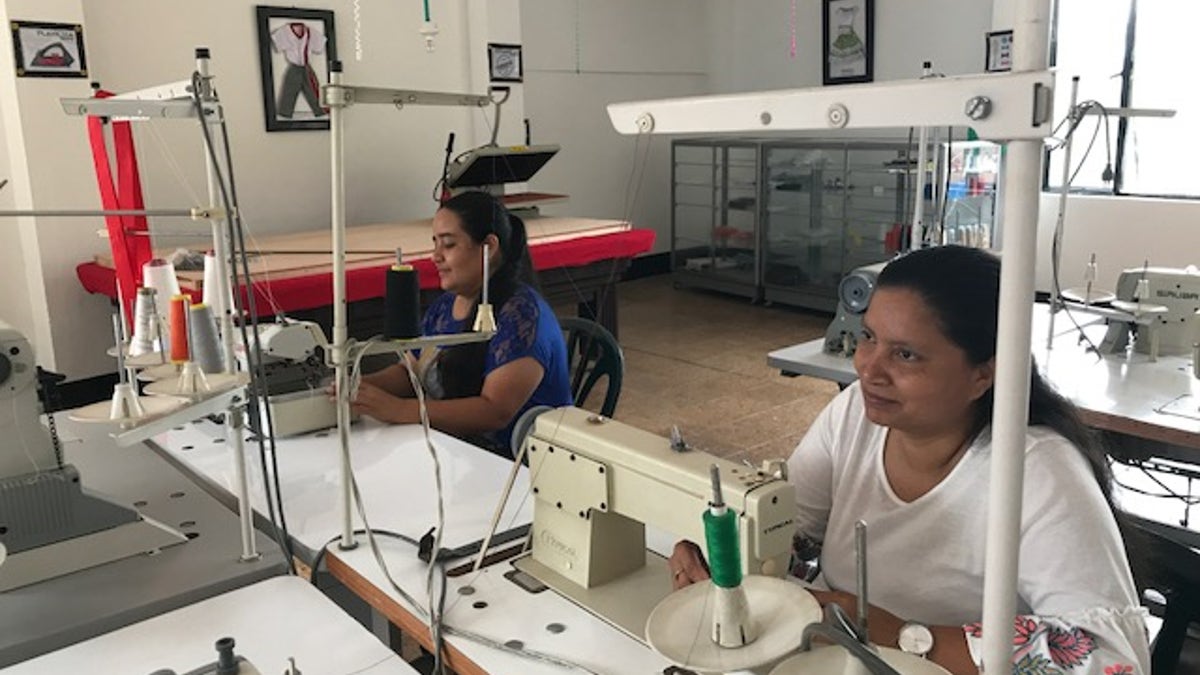
Mothers Diana Gualteros, 33 and Lucelly Foreno, 44 have taken advantage of the emerald mining resurgence to start their own sewing shop (Fox News/Hollie McKay)
Seamstress and mother Diana Gualteros, 33, who opened a tailor shop, said she was given a head start with the task to sew uniforms for the miners. She just received her first request to start making school uniforms for village students.
While locals often receive start-up support from outside companies like Fura who come in, the idea is for them to be “self-sustaining,” and develop contracts and business agreements that have the potential to long outlast the mining.
For most, it has been a baptism by fire – even just the basics of opening a bank account and book-keeping in the remote region has been a change, albeit a welcome one.
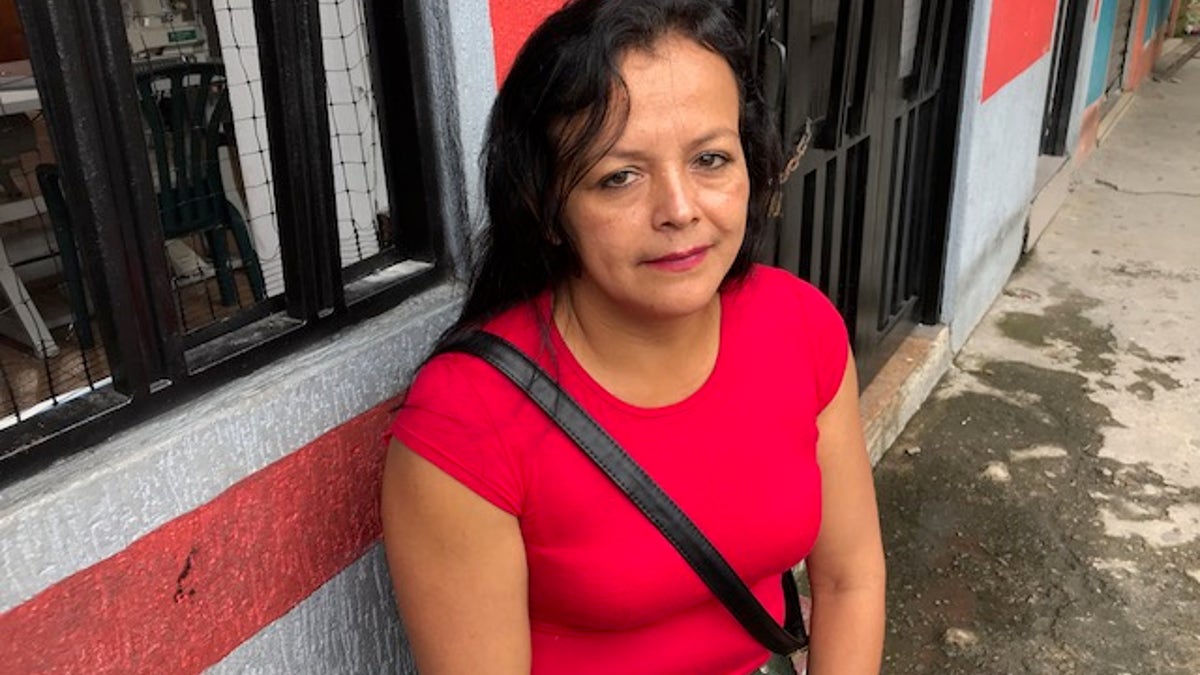
Maria Porras, a 44-year-old mother of six and emerald mine wash plant worker (Fox News/Hollie McKay)
“As women and mothers, weren’t taken into account before, but it is wonderful now we are,” said Maria Porras, a 44-year-old mother of six and wash plant worker. “Before in Colombia life was terrible, now we are all free – adults and children and visitors – to walk around without war.”
Civil conflict has alternately simmered and raged across the country over the past 50 years – making it the longest standing conflict in Latin America. But several locals say life is looking up.
Two years ago, a historic peace deal was inked between the Colombian government and the FARC rebel group, ending a conflict that claimed an estimated 220,000 lives and displaced almost six million people.
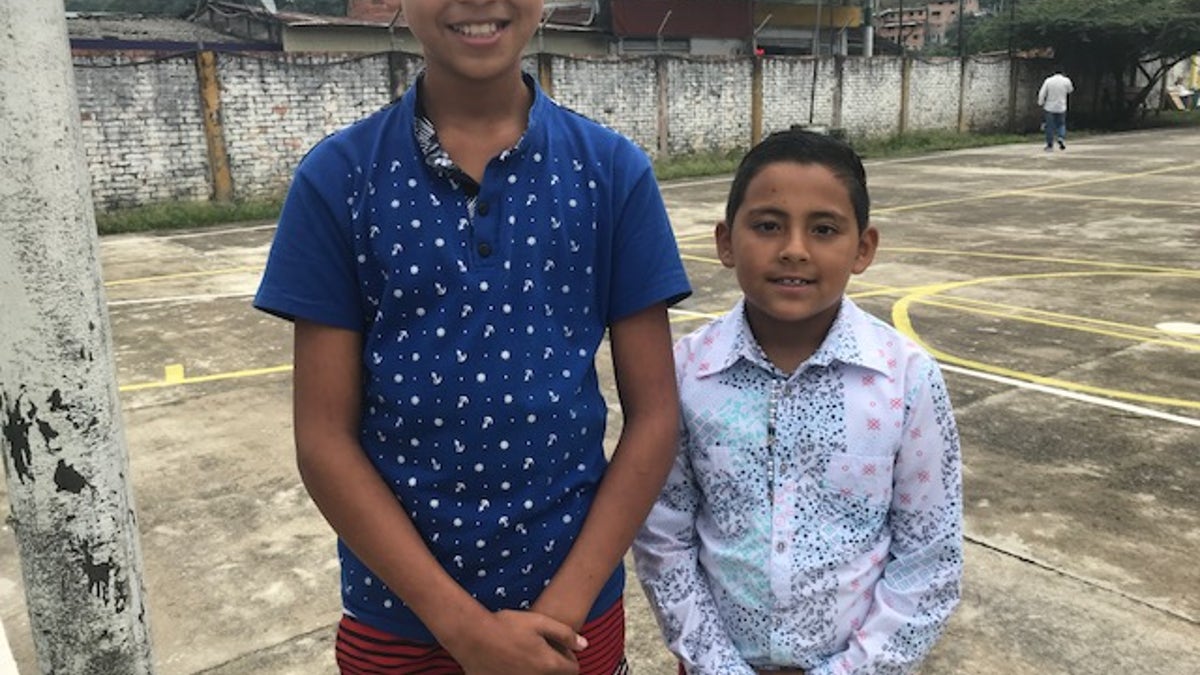
Coscuez locals Edison, 12 and Daniel, 8 ahead of English languages lessons. (Fox News/Hollie McKay)
The rural women, who have long suffered throughout the Colombian conflict, say they are now not only finding their independence economically but are leading the charge to ensure the armistice is upheld.
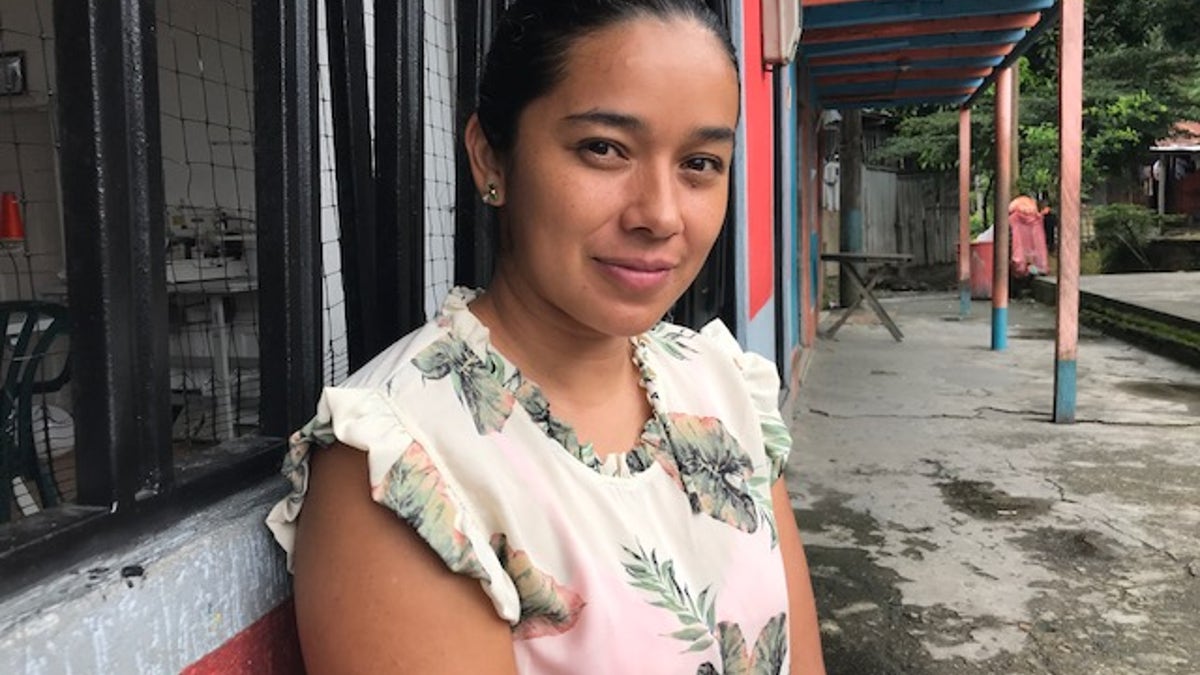
Paola Henao, 34 has started learning English and hopes her children too have the opportunity. (Fox News/Hollie McKay)
For one, mine administrative worker and mother of a daughter, Yvonne Foreo, 38, recalled having stayed in Boyacá as a child until the fighting became “too heavy.” She fled for the capital of Bogotá when she was around seven, and attributes today’s relative peace to renewed opportunities for all members of the household - along with respect for leaders and the diligence of the Catholic Church.
“The Church has been very on top of this; if some person wants to damage the peace process – they intervene,” she explained. “And as mothers, we will not let our children to be brought up in conflict.”
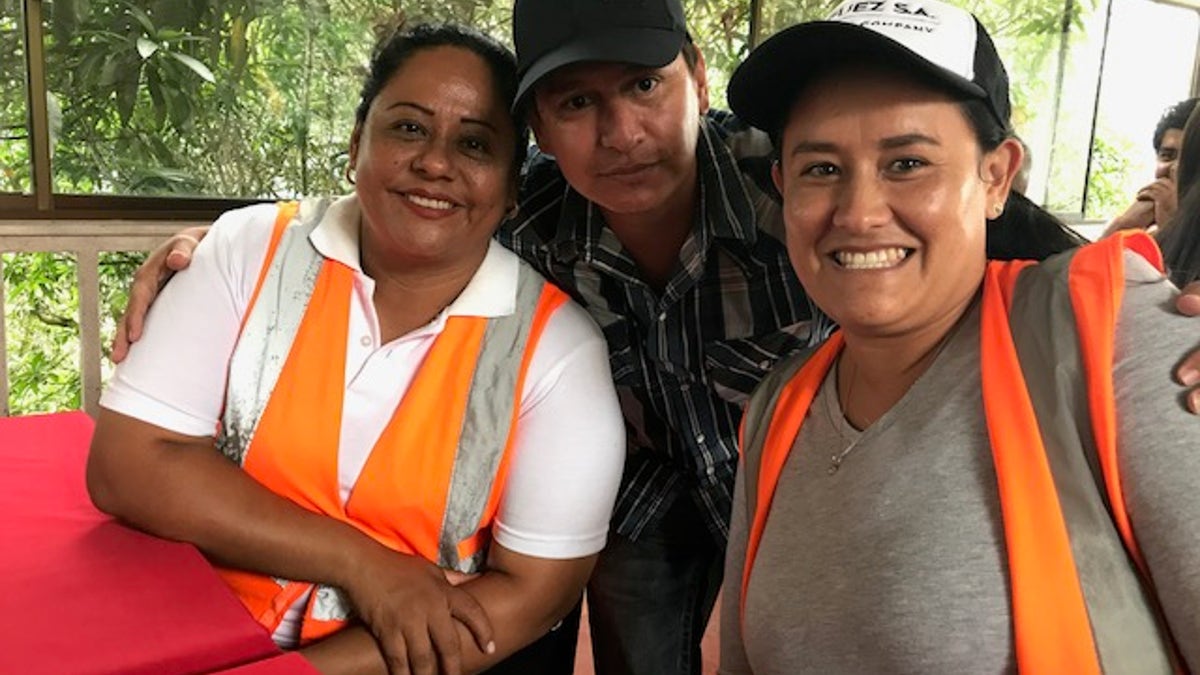
Mine workers Jenny and Ivonne say they are supported in their community
But peace still comes with an array of fragilities.
Though several women in this small community support the notion of outside companies coming in to boost economic output, the issue is still a controversial one across Colombia. Many opposed to mining do so out of concern for ancestral land rights, environmental impact, and concern that national interests are being prioritized over local ones, and questions of who receives the economic benefits.
Last year, one of several examples, the South Africa-based AngloGold mining company was made stop work at its largest gold exploration project in La Colosa, Colombia after local residents voted to prohibit mining in the region. In response to a wave of investor concerns, Colombia’s constitutional court earlier this month ruled that local and often environmentally-focused referendums which ban mining and oil extraction can no longer put a stop energy projects.
According to James Roberts, a research fellow at The Heritage Foundation and co-editor of the Index of Economic Freedom, there are numerous issues from local concern over transparency, to a lack of education on both the pros and cons of major projects, to an oft-cited "general distrust" of capital-intensive groups.
"Many often see natural resources as part of their patrimony," he noted. "Mining has been and is a very politically sensitive issue."
Hunter Lovins, President of Natural Capitalism Solutions, pointed out local support and ethical practices vary company to company, mine to mine.
"All too often, companies bow to perceived shareholder pressure to maximize returns and it is about extracting fast," she added. "But now, we are seeing that some have started working hard to have genuine conversations with communities, to mitigate environmental harm and for everyone to have a voice in the process."







































